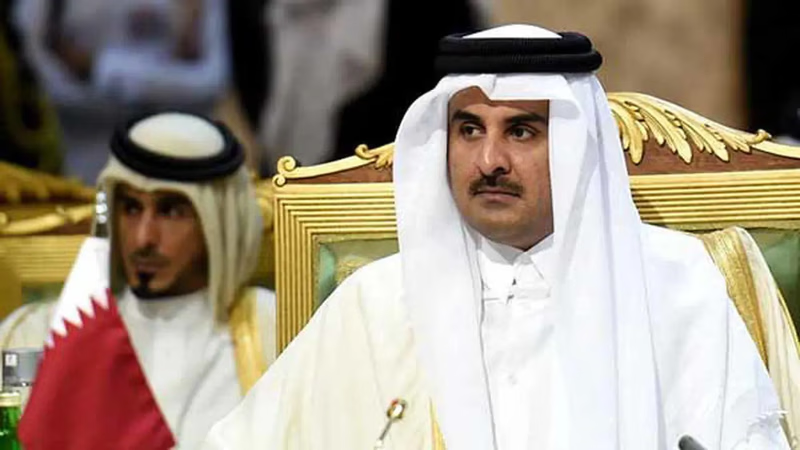
Doha cityscape showcasing modern architecture in Qatar.
Qatar is governed as an absolute monarchy, where power is concentrated in the hands of the ruling Al Thani family. The Emir of Qatar, who is the head of state, exercises significant executive authority and holds ultimate decision-making power. The Emir of Qatar is the paramount leader and holds the highest authority in the country. The Emir is the head of state, head of government, and commander-in-chief of the armed forces. The position of Emir is hereditary, passing from father to son within the Al Thani family.
The Advisory Council, also known as the Shura Council, serves as a consultative body in Qatar's political system. Its members are appointed by the Emir. The council discusses and reviews proposed legislation, offers recommendations, and provides advice to the government. However, its decisions are not binding. The Council of Ministers, appointed by the Emir, is responsible for the day-to-day administration and implementation of government policies. It is comprised of ministers who oversee various government ministries and departments.
Qatar has a structure similar to the monarchy, sovereignty is inherited and the emir is the head of state and the highest decision-maker. In addition to the fact that the Amir has broad powers under the law, he is a superior power about other institutions that are not under his direct rule. Article 17 of the Qatari Constitution gives the emir the power to issue decrees on the advice of the Council of Ministers and in consultation with the Consultative Council, and Article 18 gives the emir executive powers with the assistance of the Council of Ministers.
Therefore, the Amir has the legislative and executive powers with the help of the Council of Ministers and the Advisory Council. The prime minister is the head of state and is appointed by the Amir. The country's parliament has 35 seats and representatives are elected by the emir. Qatar is an independent Arab state with the rule of law, its religion is Islam, and Islamic law is the main source of legislation in this country. Individual property, investment, and work exist as individual rights in this country and are formed according to the law. The government permits freedom of economic activity that does not conflict with the public interest.
Doha is the capital of Qatar, this beautiful city is located on the beautiful shores of the Persian Gulf. The city is designed in a very modern way, there are many coastal villages in this city, and modernization plans in Qatar include commercial and residential buildings. The city has an international airport, the economic situation of this city is mostly seen in the field of oil and gas and construction. Qatar's economy is highly dependent on Doha. Environmental development in Qatar is seen as very ideal.
Doha has a hot and dry climate with sunny summers. Another city in Qatar is the city of Al Rayyan; The city has a population of 392,428. This city is one of the proposed venues for the 2022 World Cup. The reason for naming this city is that in the rainy season, due to its low altitude, the Al-Rayan area becomes a flood plain, and during this period, it supplies water to many wild plants that have grown in this area.
Al-Khor is a coastal city in northern Qatar, located 50 km north of Doha, and is one of the largest cities in Qatar. Al-Khor is home to many oil and gas workers due to its proximity to the oil and gas fields, northern Qatar, and the industrial city of Ras Laffan. Other major cities in Qatar include Ras Laffan, Lucille, Mahajan, Masiaid, Al-Kharara, Wakrah, Zabara, and Wam Bab, each of which has its economic system.
Qatar has several ministries that handle different areas of governance and policy implementation. These ministries include finance, foreign affairs, energy, education, health, transportation, and more. Ministers are appointed by the Emir and are responsible for managing their respective ministries. Qatar is divided into municipalities, each with its own municipal council. The municipal councils are responsible for local governance and address local issues related to infrastructure, public services, and community development. The members of municipal councils are partially elected, with the remaining members appointed by the government.
-
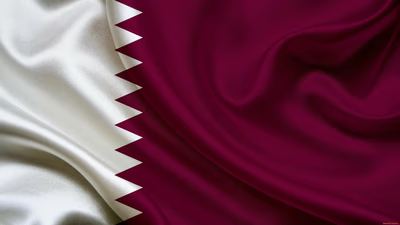
Qatar"s economy is significantly influenced by its sovereign wealth fund, the Qatar Investment Authority (QIA), which invests in diverse sectors globally. The country has established itself as a financial hub, particularly through the Qatar Financial Centre (QFC), attracting international businesses with favorable tax incentives. Despite a recent GDP growth rate of -2. 60%, Qatar"s per capita GDP stands at $112,531. 50, showcasing its economic strength. The nation is a leading player in the Islamic finance sector and heavily relies on its hydrocarbon resources, especially liquefied natural gas (LNG), contributing to global energy security. Economic diversification efforts are underway, focusing on finance, real estate, tourism, and technology to reduce dependence on hydrocarbons. Initiatives like Qatar National Vision 2030 aim to foster innovation and attract global investments.
Additionally, Qatar"s strategic location enhances its trade relationships worldwide, facilitating both exports and imports. The hosting of major international events like the 2022 FIFA World Cup further boosts tourism and commercial activities, solidifying Qatar"s position in the global market.
-

Qatar operates as an absolute monarchy, with power centralized in the Al Thani family. The Emir serves as the head of state and government, holding significant executive authority. The position is hereditary, ensuring continuity within the ruling family. The Advisory Council, or Shura Council, acts as a consultative body, providing recommendations to the Emir but lacking binding decision-making power. The Council of Ministers, also appointed by the Emir, manages daily government operations and policy implementation. Qatar"s political structure emphasizes the Emir"s legislative and executive powers, supported by these councils. The country maintains a legal framework based on Islamic law while allowing individual rights related to property and economic activities that align with public interest. Doha is the capital city and a hub for economic activity, particularly in oil and gas sectors.
Other cities like Al Rayyan and Al Khor contribute to Qatar"s diverse economy through their proximity to industrial areas and resources. Qatar"s governance includes various ministries overseeing essential sectors such as finance, foreign affairs, energy, education, and health. Municipal councils manage local governance issues across different municipalities, with members being both elected and appointed.
-
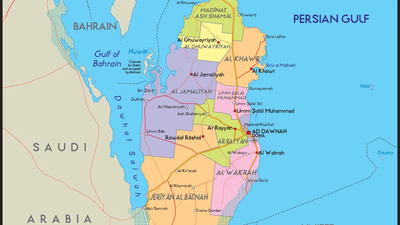
Qatar"s strategic location on the northeastern Arabian Peninsula significantly influences its economy and culture. The country, bordered by Saudi Arabia and the Persian Gulf, has a high-income economy primarily driven by its vast reserves of natural gas and oil. As one of the leading exporters of liquefied natural gas (LNG), Qatar"s oil and gas sector accounts for a substantial portion of government revenue, contributing to rapid economic growth estimated at 20%. The official language is Arabic, essential for business communication, while English is also widely spoken in educational and professional settings. Qatar"s climate is characterized as hot and dry desert, with optimal visiting times in April, May, and autumn. The discovery of oil in 1939 transformed Qatar into one of the richest countries globally, prompting diversification efforts that reduced dependence on oil revenues from 93% to 83%. Investments in energy infrastructure have further solidified its economic position. Additionally, Qatar"s sports infrastructure attracts international events, enhancing tourism and business networking opportunities.
Overall, Qatar"s unique geographical advantages combined with its rich natural resources create a dynamic trade environment. "
-
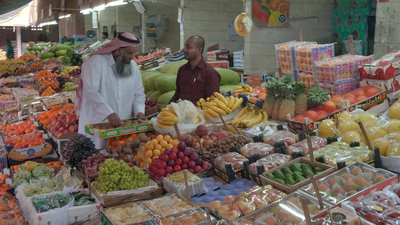
Qatar"s economy is thriving, primarily due to its abundant natural gas and oil reserves, leading to a high GDP per capita. The government is focused on diversifying the economy through the Qatar National Vision 2030, which opens avenues for exporters in finance, real estate, tourism, and technology. Strong trade relations and various bilateral agreements enhance market access for exporters. Qatar"s strategic location next to the Persian Gulf facilitates goods transit, while modern infrastructure supports trade activities. Despite political challenges with neighboring countries, Qatar maintains robust ties with Iran, which aids in import-export dynamics. The country heavily relies on imports for industrial goods due to a lack of local production capabilities. Key sectors for export opportunities include construction materials and services, especially with upcoming events like the FIFA World Cup 2022 driving demand. Free trade zones such as QFZA and QFC provide favorable conditions for businesses looking to enter the Qatari market.
-
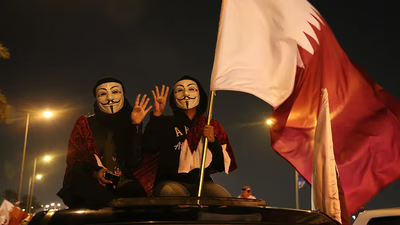
Qatar has made significant strides in various sectors, including legislation, crime reduction, and economic development. The country maintains a unique cultural blend due to its high immigration rate, with Islam playing a central role in societal norms. Dress codes are formal, especially in religious settings, and respect for local customs is paramount. The Qatari hijab has seen some relaxation over the years, yet traditional values remain strong. Education and transportation systems are advanced, contributing to the nation"s economic growth. Qatar"s government effectively manages inflation and food prices while ensuring high satisfaction among its citizens regarding welfare services. The hospitality of the Qatari people is notable, reflecting a calm society with strong emotional ties. As Qatar continues to develop its infrastructure and services, it remains essential for visitors to respect local customs and practices.
-
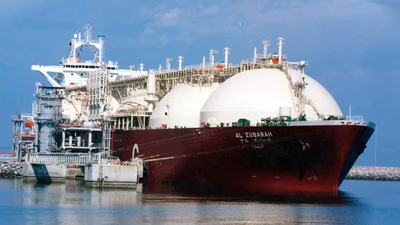
Qatar"s economy is one of the wealthiest globally, primarily due to its extensive natural gas reserves. The country is a leading producer and exporter of liquefied natural gas (LNG), which significantly contributes to its high GDP per capita and low unemployment rates. The oil and gas sector remains the backbone of Qatar"s economy, generating substantial government revenue. However, Qatar is actively pursuing economic diversification through initiatives like the Qatar National Vision 2030, aiming to reduce reliance on hydrocarbons by investing in finance, real estate, tourism, transportation, and technology. This diversification strategy has already shown positive results, with economic growth estimated at 20%. The upcoming 2022 World Cup is anticipated to further boost the economy. Despite challenges in agriculture due to saline soils and reliance on migrant labor for farming, sectors like fishing also contribute to the economy. Since discovering oil in 1939 and joining OPEC in 1961, Qatar has seen a significant increase in average income levels.
The government has established sovereign wealth funds like the Qatar Investment Authority (QIA) to manage surplus revenues from hydrocarbon sales effectively. These funds have made global investments across various sectors, supporting infrastructure development and social welfare programs.






